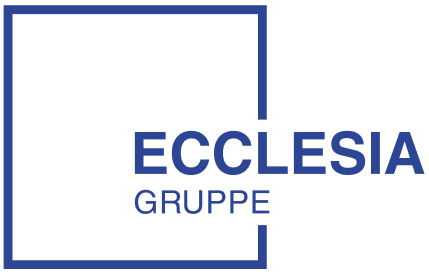
Making transactions legally compliant and minimising liability risks
With our specialised expertise, we support companies and institutions in structuring transactions in a legally compliant manner, minimising liability risks and taking regulatory requirements into account at an early stage. Here is an overview of the current situation - with tips from our expert Stefanie Timm, Key Strategic Relationship Manager in the Speciality department.
Political developments: iMVZ regulation in the coalition agreement
In the coalition agreement of the new German government, the governing parties CDU/CSU and SPD spoke out in favour of regulating investor-operated medical care centres in April. An "iMVZ Regulation Act" is intended to create transparency regarding ownership structures and ensure that contribution funds are used in accordance with the system. The then Minister of Health Karl Lauterbach (SPD) had already announced corresponding steps in 2022. He received support from several federal states, which also called for legal requirements. The concern: iMVZs could concentrate on urban centres and increasingly offer revenue-boosting services at the expense of balanced care. However, a corresponding draft law failed at the time due to opposition from the FDP.
Although the new government has taken up the issue again, no concrete timetable for implementation is yet apparent. The Federal Ministry of Health's current project planning makes no reference to a corresponding legislative proposal. However, the topic remains relevant.
Approval from the field - including reservations
The medical profession generally welcomes the plans to regulate investor-run medical care centres. Klaus Reinhardt, President of the German Medical Association, sees iMVZs as a "systematic change in the structure of care". Practice chains should therefore be obliged to offer the entire range of specialist services and not just lucrative treatments - i.e. high-yield procedures. The Association of Substitute Health Insurance Funds is also in favour of regulation in order to prevent the formation of monopolies and concentrations of services. The Federal Association of Operators of Medical Care Centres (BBMV) is also open to reform. The aim must be more transparency and quality in the interests of patients. However, the association rejects blanket bans.
New study brings movement
In May of this year, economic researcher Christoph Scheuplein published a comprehensive study on iMVZs. According to this study, around 50,000 employees in Germany work in 54 practice chains with around 2,000 locations. However, it often remains unclear who the owners are and where profits go. The expert recommends a nationwide transparency register that discloses ownership structures down to the controlling owner. The register would have to be regularly audited and publicly accessible. The so-called "signposting obligation" is also being discussed in this context. It stipulates that medical facilities must indicate on site - for example in the entrance area or on the website - which chain or investor they belong to. The aim is to inform patients about the organisation. However, critics consider this measure to be inadequate: the complex ownership structures would not be as transparent as necessary.

– Stefanie Timm, Key Strategic Relationship Managerin im Ressort SpecialtyWe are always at our customers' side - our solutions create trust and security - also vis-à-vis investors and supervisory authorities.
How can additional transaction security be created?
Against the backdrop of increasing regulatory requirements, professional protection of transactions in the healthcare sector is essential. The Ecclesia Group offers a comprehensive range of services for this - from risk analysis to post-purchase integration. "Particularly in the context of private equity investments in MVZs, it is crucial to identify transaction risks at an early stage and hedge them in a targeted manner," explains Stefanie Timm. "This is the only way to minimise liability risks and make integration processes sustainable."
The Ecclesia Group's services at a glance:
- Due diligence & insurance analysis
Review of existing insurance contracts (e.g. public liability, cyber insurance, etc.), identification of gaps in cover and outdated policies. - M&A-specific insurance solutions
W&I insurance to cover guarantees and warranties from the purchase agreement, contingent liability insurance for known risks and tax risk protection. - Liability insurance
Protection of management and senior executives against personal liability risks - particularly relevant in the event of allegations of breaches of duty in the context of the transaction. Special solutions for departing managing directors or shareholders. - Cyber insurance
Ensuring suitable cover that also applies in the transaction context. - Post-merger consulting
Harmonisation of insurance cover with existing structures and optimisation of conditions.
Stefanie Timm: "The regulatory developments surrounding iMVZ show how important it is to be well prepared not only economically, but also legally and in terms of insurance. We are always at our customers' side - our solutions create trust and security - also vis-à-vis investors and supervisory authorities."
Conclusion: regulation likely - protection essential
Well-designed regulation could help to create transparency, prevent undesirable developments and secure the supply of insurance in the long term. The decisive factor will be how differentiated and legally secure the planned law is designed - and whether it is possible to strike a balance between the different interests of politicians, the medical profession, operators and the insured.
The question could be answered politically in the near future. Market participants should prepare for new transparency obligations and regulatory requirements in the long term - and at the same time secure their transactions professionally.
If you are interested in an exchange on the topics of transactions, M&A and private equity in the healthcare sector, please contact us: Contact details
